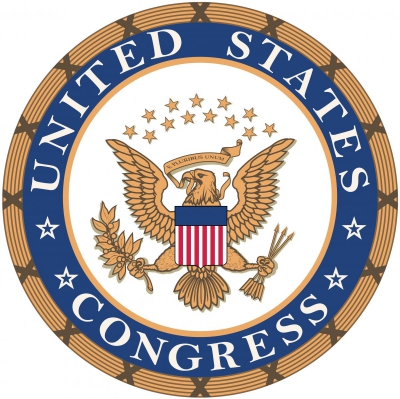The Foraker Act, Pub.L. 56191, 31 Stat. 77, enacted April 12, 1900, officially known as the Organic Act of 1900, is a United States federal law that established civilian (albeit limited popular) government on the island of Puerto Rico, which had recently become a possession of the United States as a result of the SpanishAmerican War. Section VII of the Foraker Act also established Puerto Rican citizenship. President William McKinley signed the act on April 12, 1900 and it became known as the Foraker Act after its sponsor, Ohio Senator Joseph B. Foraker. Its main author has been identified as Secretary of War Elihu Root.The new government had a governor and an 11-member executive council appointed by the President of the United States, a House of Representatives with 35 elected members, a judicial system with a Supreme Court and a United States District Court, and a non-voting Resident Commissioner in Congress.The executive council was all appointed: five individuals were selected from Puerto Rico residents while the rest were from those in top cabinet positions, including attorney general and chief of police (also appointed by the president). The Insular Supreme Court was also appointed. In addition, all federal laws of the United States were to be in effect on the island. The first civil governor of the island under the Foraker Act was Charles H. Allen, inaugurated on May 1, 1900, in San Juan, Puerto Rico. This law was superseded in 1917 by the JonesShafroth Act.
The United States Congress is the legislature of the federal government of the United States. It is bicameral, being composed of a lower body, the House of Representatives, and an upper body, the Senate. The Congress meets in the United States Capitol in Washington, D.C. Both senators and representatives are chosen through direct election, though vacancies in the Senate may be filled by a governor's appointment. Congress has 535 voting members: 100 senators and 435 representatives. The vice president of the United States has a vote in the Senate only when senators are evenly divided. The House of Representatives has six non-voting members.The sitting of a Congress is for a two-year term, at present, beginning every other January. Elections are held every even-numbered year on Election Day. The members of the House of Representatives are elected for the two-year term of a Congress. The Reapportionment Act of 1929 establishes that they be elected in single-member constituencies or districts by first-past-the-post and that Congressional districts be apportioned to states by population every ten years using the United States Census results, provided that each state has at least one Congressional representative. Each senator is elected at-large in their state for a six-year term, with terms staggered, so every two years approximately one-third of the Senate is up for election. Each state, regardless of population or size, has two senators, so currently, there are 100 senators for the 50 states.
Article One of the United States Constitution requires that members of Congress must be at least 25 years old (House) or at least 30 years old (Senate), have been a citizen of the United States for seven (House) or nine (Senate) years, and be an inhabitant of the state which they represent. Members in both chambers may stand for re-election an unlimited number of times.
The Congress was created by the Constitution of the United States and first met in 1789, replacing in its legislative function the Congress of the Confederation. Although not legally mandated, in practice since the 19th century, Congress members are typically affiliated with one of the two major parties, the Democratic Party or the Republican Party, and only rarely with a third party or independents affiliated with no party. In the case of the latter, the lack of affiliation with a political party does not mean that such members are unable to caucus with members of the political parties. Members can also switch parties at any time, although this is quite uncommon.

1900Apr, 2
The United States Congress passes the Foraker Act, giving Puerto Rico limited self-rule.
Choose Another Date
Events on 1900
- 16Jan
American Samoa
The United States Senate accepts the Anglo-German treaty of 1899 in which the United Kingdom renounces its claims to the Samoan islands. - 24Mar
New York City Subway
Mayor of New York City Robert Anderson Van Wyck breaks ground for a new underground "Rapid Transit Railroad" that would link Manhattan and Brooklyn. - 5Apr
Linear B
Archaeologists in Knossos, Crete, discover a large cache of clay tablets with hieroglyphic writing in a script they call Linear B. - 2Jul
Lake Constance
The first Zeppelin flight takes place on Lake Constance near Friedrichshafen, Germany. - 14Jul
Boxer Rebellion
Armies of the Eight-Nation Alliance capture Tientsin during the Boxer Rebellion.

 English
English  español
español  français
français  português
português  русский
русский  العربية
العربية  简体中文
简体中文 